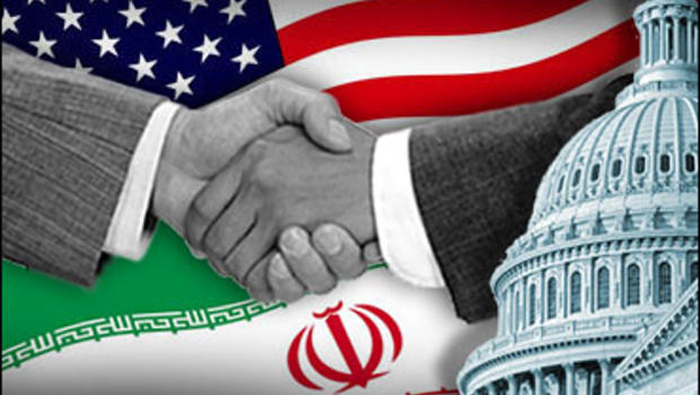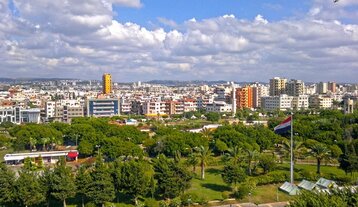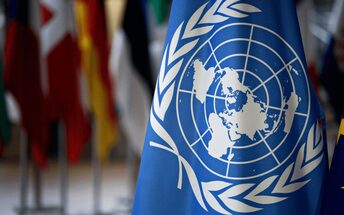-
Qassem Soleimani's death is a turning point in the Middle East crisis

On January 2, 2020, Qassem Soleimani, the notorious commander of Iran’s terrorist Quds Force was killed by a U.S.-led airstrike in the Baghdad International Airport.
Soleimani, as a major general, was the second person in the Iranian regime and was a hated figure among the vast majority of Iranians. During uprisings in Iran in 2018 and 2019, protesters tore up and torched his posters in different cities.
 Some in the west, especially in the mainstream media, for political purposes, have been trying to portray Soleimani as if he was a “Hero for the Iranian people”, or a “genius and strategist”. The goal of this propaganda is to undermine his elimination by the Trump administration.
Some in the west, especially in the mainstream media, for political purposes, have been trying to portray Soleimani as if he was a “Hero for the Iranian people”, or a “genius and strategist”. The goal of this propaganda is to undermine his elimination by the Trump administration.The fact is that Soleimani was neither a “Hero” nor a “genius”; he was just a cruel, and merciless person who would follow the orders of the regime’s Supreme leader with maximum brutality and butchery. He and his proxy militias in Syria and Iraq massacred and displaced millions of people from their towns and villages. They used all types of prohibited and inhumane weapons, including flammable and cluster bombs or chemical weapons on residential areas for intimidation and cleansing.
Calling Soleimani, a “Hero” is an insult to the Iranian people and the people of the region who have been victims of his atrocities. It is also an insult to humanity to call a mass murderer a “hero”. Soleimani personally was behind the flow of IEDs to Iraq and Afghanistan.

On April 2019, Pentagon announced that Iran is to blame for 17 percent of all U.S. service personnel deaths between 2003 and 2011.
The sophisticated IEDs were secretly manufactured in Iran’s military industry factories under the order of Quds force and Soleimani and were distributed in Iraq and Afghanistan. Later Iran’s military factories manufactured a more powerful and deadlier roadside bomb called explosively formed projectiles (EFPs). EFPs were built under a confidential order by the Qods Force in Iran. The information about the exact location of the factories was revealed by the National Council of Resistance of Iran on July 25, 2006, and 29 January 2009

A short review of Soleimani’s activities reflects his true terrorist nature.
Soleimani played a key role in the killing of the members of Iran’s main opposition group,
Altogether from 2009 to 2016, Quds Force proxies in Iraq under the command of Qasem
Soleimani killed 141 members of the People’s Mojahedin Organization of Iran (MEK) in terrorist attacks, thousands more were wounded and injured.
Soleimani and Quds force, under his command, was in charge of all the terrorist attacks of the Iranian regime and its proxy groups all across the world. All the Shite terrorist organizations throughout the Middle East, including Kateb Hezbollah, Asaeb al-Haq in Iraq, the Hezbollah in Lebanon, and many other groups in Syria, Yemen, Bahrain, and … were under the command of Soleimani.
Soleimani was also responsible for the killing of thousands in Syria. The Quds force and its proxy groups under the command of Soleimani with brutal tactics destroyed many towns and villages and massacred the civilians.
In recent protests in Iraq, Soleimani led the repressive forces to suppress the protests. The snipers targeting protest leaders from rooftops were the tactic of Soleimani. Most of the 450 protesters killed during the protests were killed by the snipers. Last November more than 1,500 protesters were killed in Iran, most of them were shot from rooftops by snipers belonging to the Quds forces. Soleimani was the mastermind for such killings in Iraq and Iran.
Soleimani was a terrorist and leader of a terrorist entity responsible for killings and sufferings of hundreds of thousands of people, and to depict him as a “Hero” is a crime and disgrace.
The Quds Force will not be the same without Qasem Soleimani, and the weakening of the Quds Force will win turn weaken the regime in its entirety. This will further weaken the regime in the face of ongoing uprisings in Iran, Iraq, and Lebanon, where Soleimani was one of the most hated figures.
You May Also Like
Popular Posts
Caricature
BENEFIT AGM approves 10%...
- March 27, 2025
BENEFIT, the Kingdom’s innovator and leading company in Fintech and electronic financial transactions service, held its Annual General Meeting (AGM) at the company’s headquarters in the Seef District.
During the meeting, shareholders approved all items listed on the agenda, including the ratification of the minutes of the previous AGM held on 26 March 2024. The session reviewed and approved the Board’s Annual Report on the company’s activities and financial performance for the fiscal year ended 31 December 2024, and the shareholders expressed their satisfaction with the company’s operational and financial results during the reporting period.
The meeting also reviewed the Independent External Auditor’s Report on the company’s consolidated financial statements for the year ended 31 December 2024. Subsequently, the shareholders approved the audited financial statements for the fiscal year. Based on the Board’s recommendation, the shareholders approved the distribution of a cash dividend equivalent to 10% of the paid-up share capital.
Furthermore, the shareholders endorsed the allocation of a total amount of BD 172,500 as remuneration to the members of the Board for the year ended 31 December 2024, subject to prior clearance by related authorities.
The extension of the current composition of the Board was approved, which includes ten members and one CBB observer, for a further six-month term, expiring in September 2025, pending no objection from the CBB.
The meeting reviewed and approved the Corporate Governance Report for 2024, which affirmed the company’s full compliance with the corporate governance directives issued by the CBB and other applicable regulatory frameworks. The AGM absolved the Board Members of liability for any of their actions during the year ending on 31st December 2024, in accordance with the Commercial Companies Law.
In alignment with regulatory requirements, the session approved the reappointment of Ernst & Young (EY) as the company’s External Auditors for the fiscal year 2025, covering both the parent company and its subsidiaries—Sinnad and Bahrain FinTech Bay. The Board was authorised to determine the external auditors’ professional fees, subject to approval from the CBB, and the meeting concluded with a discussion of any additional issues as per Article (207) of the Commercial Companies Law.
Speaking on the company’s performance, Mr. Mohamed Al Bastaki, Chairman BENEFIT , stated: “In terms of the financial results for 2024, I am pleased to say that the year gone by has also been proved to be a success in delivering tangible results. Growth rate for 2024 was 19 per cent. Revenue for the year was BD 17 M (US$ 45.3 Million) and net profit was 2 Million ($ 5.3 Million).
Mr. Al Bastaki also announced that the Board had formally adopted a new three-year strategic roadmap to commence in 2025. The strategy encompasses a phased international expansion, optimisation of internal operations, enhanced revenue diversification, long-term sustainability initiatives, and the advancement of innovation and digital transformation initiatives across all service lines.
“I extend my sincere appreciation to the CBB for its continued support of BENEFIT and its pivotal role in fostering a stable and progressive regulatory environment for the Kingdom’s banking and financial sector—an environment that has significantly reinforced Bahrain’s standing as a leading financial hub in the region,” said Mr. Al Bastaki. “I would also like to thank our partner banks and valued customers for their trust, and our shareholders for their ongoing encouragement. The achievements of 2024 set a strong precedent, and I am confident they will serve as a foundation for yet another successful and impactful year ahead.”
Chief Executive of BENEFIT; Mr. Abdulwahed AlJanahi commented, “The year 2024 represented another pivotal chapter in BENEFIT ’s evolution. We achieved substantial progress in advancing our digital strategy across multiple sectors, while reinforcing our long-term commitment to the development of Bahrain’s financial services and payments landscape. Throughout the year, we remained firmly aligned with our objective of delivering measurable value to our shareholders, strategic partners, and customers. At the same time, we continued to play an active role in enabling Bahrain’s digital economy by introducing innovative solutions and service enhancements that directly address market needs and future opportunities.”
Mr. AlJanahi affirmed that BENEFIT has successfully developed a robust and well-integrated payment network that connects individuals and businesses across Bahrain, accelerating the adoption of emerging technologies in the banking and financial services sector and reinforcing Bahrain’s position as a growing fintech hub, and added, “Our achievements of the past year reflect a long-term vision to establish a resilient electronic payment infrastructure that supports the Kingdom’s digital economy. Key developments in 2024 included the implementation of central authentication for open banking via BENEFIT Pay”
Mr. AlJanahi concluded by thanking the Board for its strategic direction, the company’s staff for their continued dedication, and the Central Bank of Bahrain, member banks, and shareholders for their valuable partnership and confidence in the company’s long-term vision.
opinion
Report
ads
Newsletter
Subscribe to our mailing list to get the new updates!






















